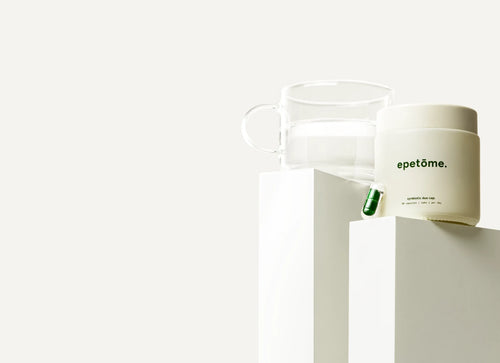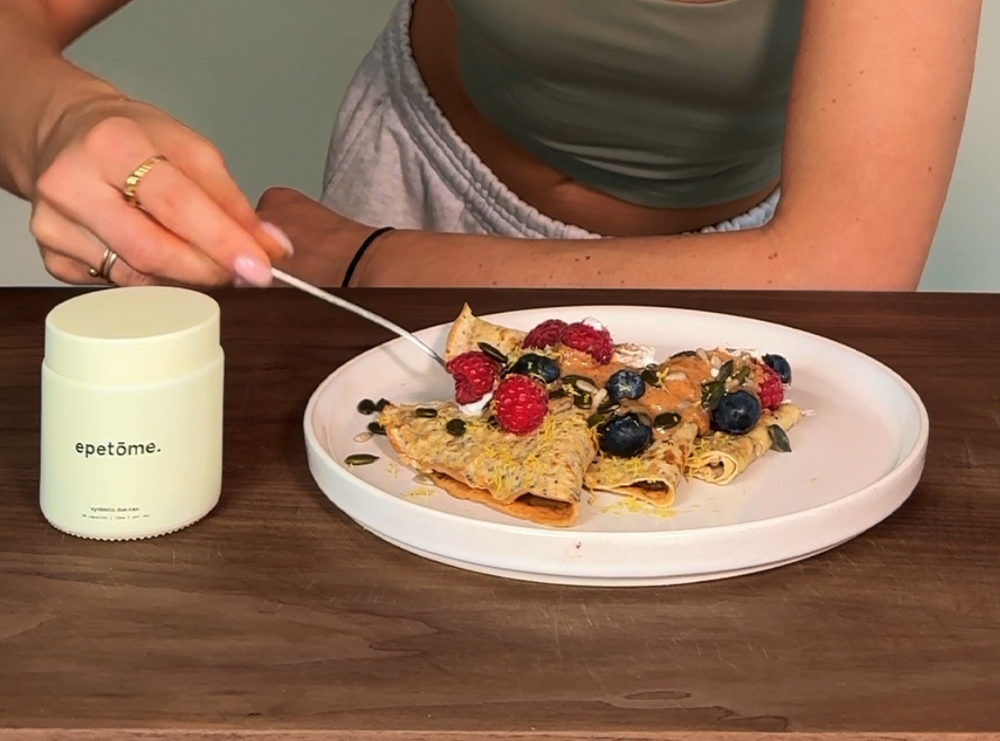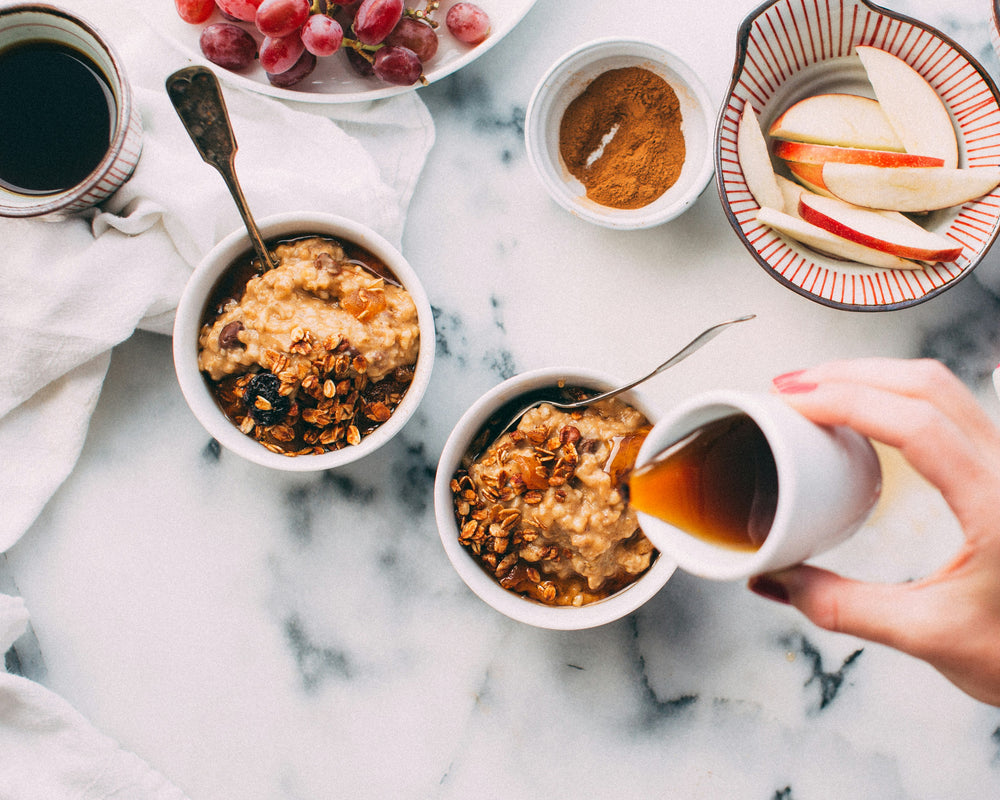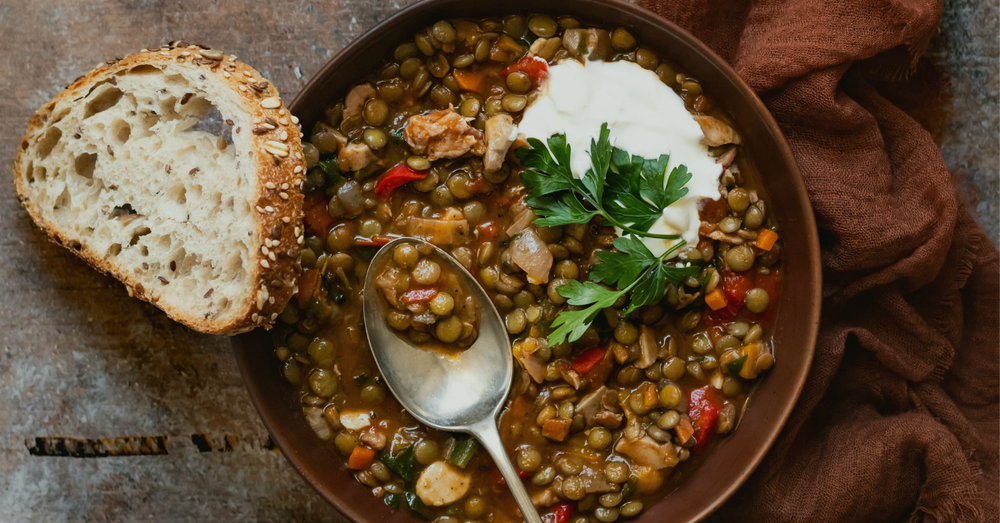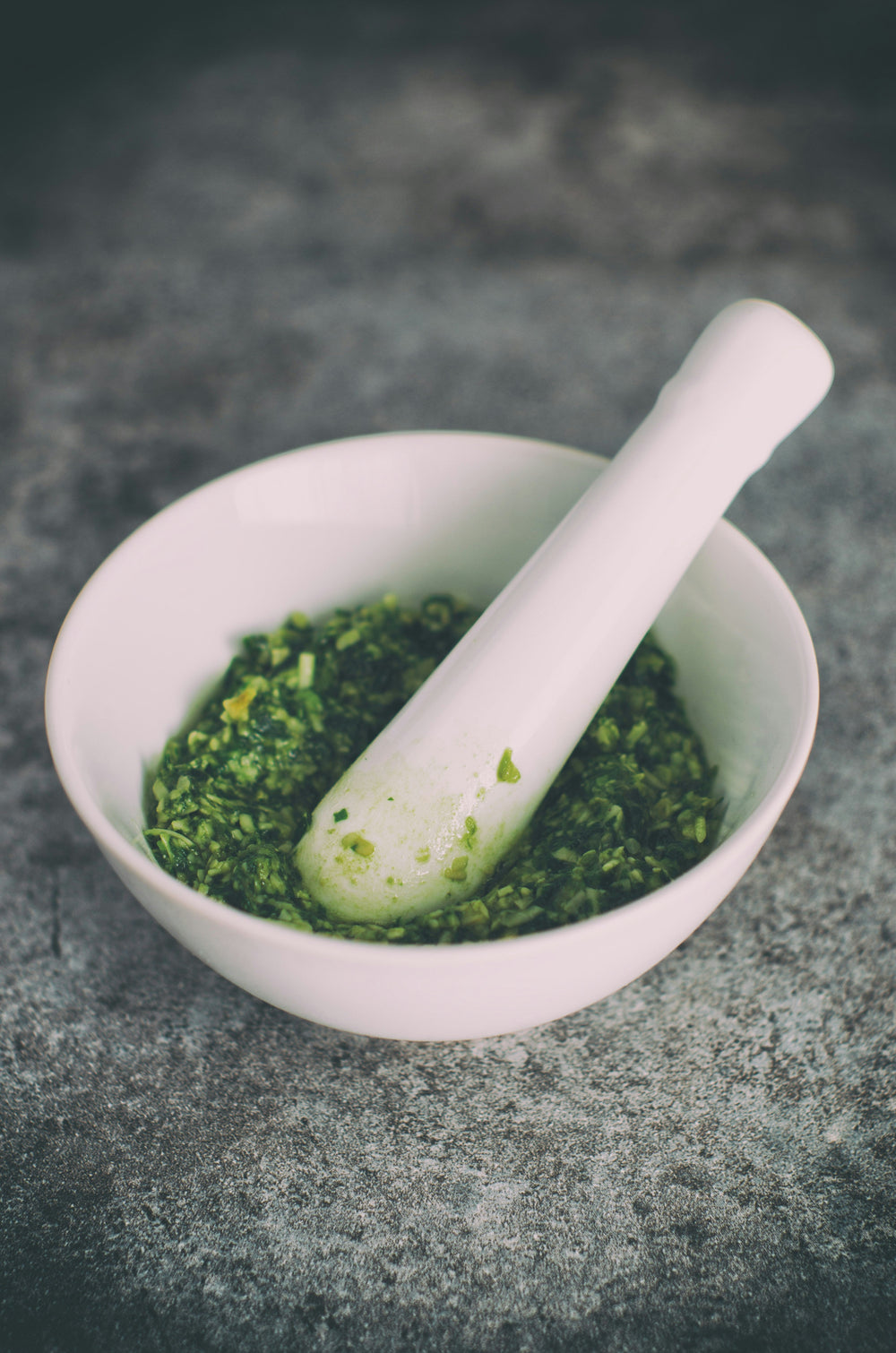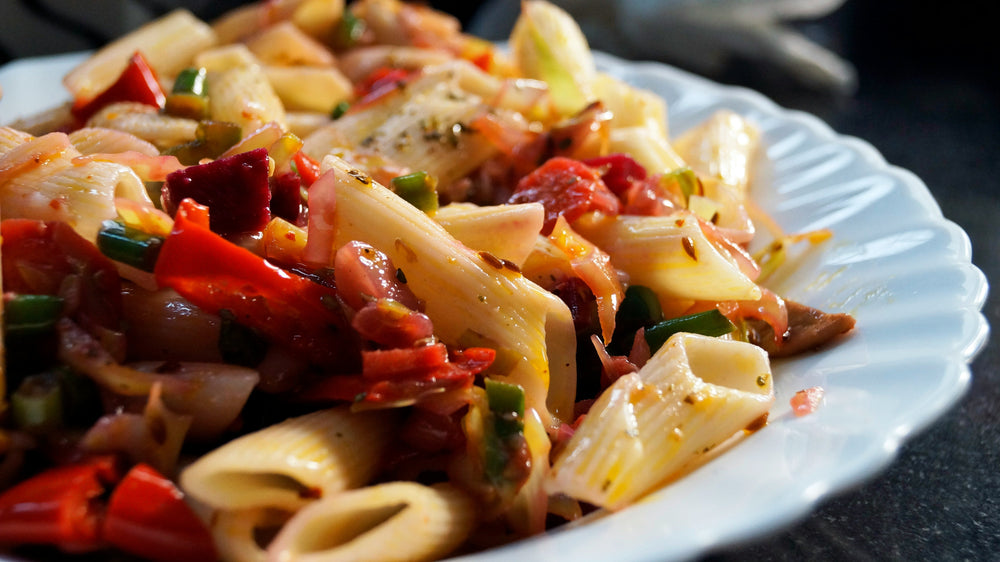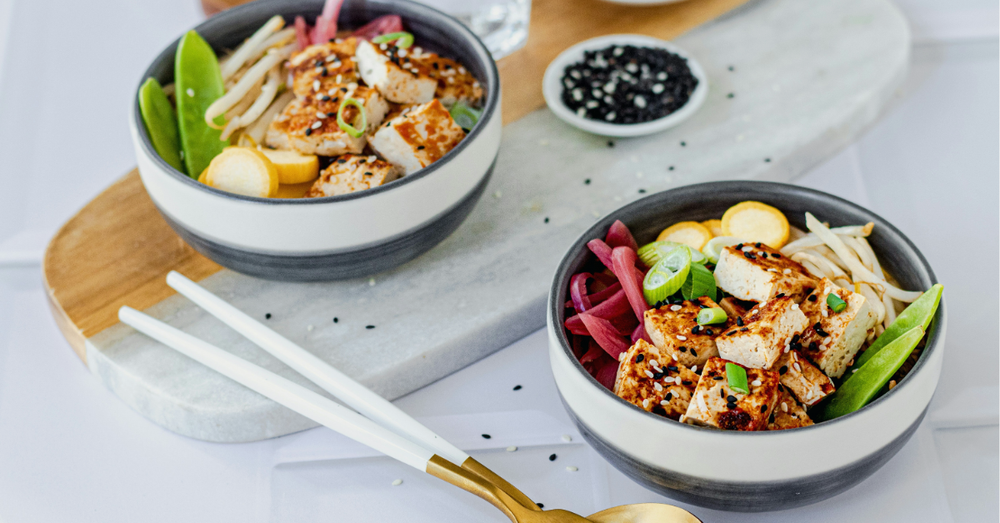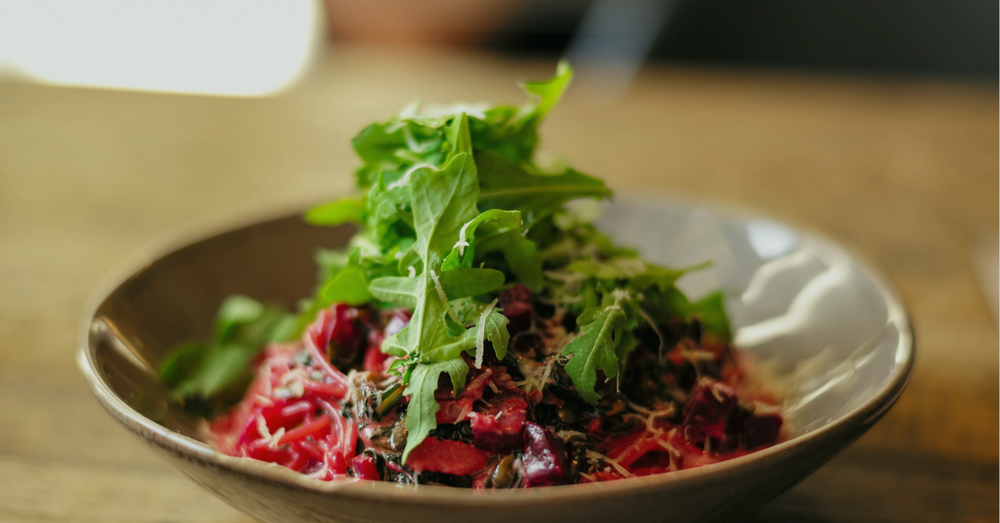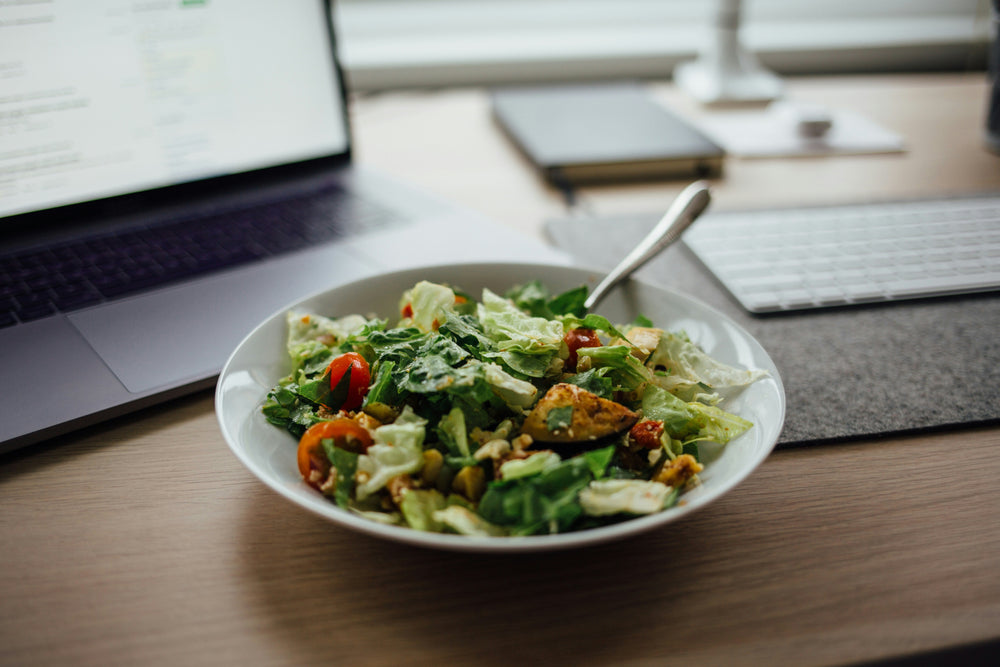This creamy green soup brings together broccoli, cauliflower, and kale for a delicious bowl that feels both comforting and energising. Finished with crispy chickpeas and toasted almonds, it is an easy way to enjoy a whole day’s worth of greens in one simple, nourishing meal.
uv exposure: what it means for your skin & gut.
Sun, Skin & Gut: What You Need to Know About UV Exposure and Health We all know sunscreen is essential, but how much do we really understand about how sunlight affects our skin, gut, and overall health? Sun exposure can be both beneficial and harmful, depending on how much we get and how we manage it. Let’s break it down. Why a Little Sun is Actually Good for You Let’s start with the positives. Just 10 to 15 minutes of sun on your skin each day can trigger your body to produce vitamin D. This vitamin supports many areas of our health, from bones to immunity, and, crucially, our gut and skin health. Vitamin D generally helps by regulating inflammation in the body. In the gut, it strengthens the lining and supports microbial diversity important for preventing conditions like inflammatory bowel disease (IBD) and irritable bowel syndrome (IBS). On the skin, it may reduce flare-ups of conditions like eczema and psoriasis. A little sunlight can do wonders for your microbiome, immune system, and inflammation levels. But Too Much Sun Can Cause Harm Here's the catch - too much UV exposure can lead to skin damage. It speeds up premature ageing, breaks down collagen, and increases the risk of skin cancer. UV rays trigger an inflammatory response not only on the skin but throughout the body. This can worsen inflammation in the gut, making symptoms in people with sensitive digestive systems or inflammatory gut conditions even worse. Excessive sun also damages your skin’s natural moisture barrier and antioxidant defences, leaving it more vulnerable to further damage and slower to heal. Can Food Help Protect Your Skin from the Sun? You can’t eat your way out of sunscreen, but your diet can support your body’s natural defences against sun damage. Research shows...

Sun, Skin & Gut: What You Need to Know About UV Exposure and Health
We all know sunscreen is essential, but how much do we really understand about how sunlight affects our skin, gut, and overall health? Sun exposure can be both beneficial and harmful, depending on how much we get and how we manage it. Let’s break it down.
Why a Little Sun is Actually Good for You
Let’s start with the positives. Just 10 to 15 minutes of sun on your skin each day can trigger your body to produce vitamin D. This vitamin supports many areas of our health, from bones to immunity, and, crucially, our gut and skin health.
Vitamin D generally helps by regulating inflammation in the body. In the gut, it strengthens the lining and supports microbial diversity important for preventing conditions like inflammatory bowel disease (IBD) and irritable bowel syndrome (IBS). On the skin, it may reduce flare-ups of conditions like eczema and psoriasis. A little sunlight can do wonders for your microbiome, immune system, and inflammation levels.
But Too Much Sun Can Cause Harm
Here's the catch - too much UV exposure can lead to skin damage. It speeds up premature ageing, breaks down collagen, and increases the risk of skin cancer. UV rays trigger an inflammatory response not only on the skin but throughout the body. This can worsen inflammation in the gut, making symptoms in people with sensitive digestive systems or inflammatory gut conditions even worse.
Excessive sun also damages your skin’s natural moisture barrier and antioxidant defences, leaving it more vulnerable to further damage and slower to heal.
Can Food Help Protect Your Skin from the Sun?
You can’t eat your way out of sunscreen, but your diet can support your body’s natural defences against sun damage.
Research shows that certain nutrients can help protect your skin from within:
-
Antioxidants: These compounds neutralise free radicals caused by UV exposure, reducing oxidative stress and inflammation.
-
Carotenoids: Found in foods like tomatoes, carrots, and leafy greens, carotenoids act as natural internal UV filters.
-
Polyphenols: Found in berries, grapes, and green tea, polyphenols help reduce UV-induced inflammation and DNA damage.
-
Omega-3 Fatty Acids: Found in oily fish, omega-3s lower skin sensitivity to UV rays and support the skin’s anti-inflammatory response.
-
Vitamins C & E: Found in citrus fruits, berries, nuts, seeds, and leafy greens, these nutrients support collagen production, repair oxidative damage, and enhance skin hydration and firmness.
One study found that eating tomato paste daily for 10 weeks reduced sunburn by 40%. Beta-carotene supplements have also been shown to offer modest sun protection, especially when taken consistently for at least 10 weeks. One research also suggests that eating grapes may help protect against UV damage and reduce inflammation, thanks to their rich polyphenol content, particularly flavonoids. In fact, one study found that people who consumed the equivalent of just over 2 cups of freeze-dried grapes per day for 14 days had increased resistance to sunburn, as seen in their skin samples.
Can Probiotics Help Protect Your Skin from UV?
It might sound surprising, but some probiotic strains can help protect your skin from sun damage. Certain probiotics work by reducing inflammation and supporting antioxidant defences in the skin.
For example, Lactobacillus acidophilus may support the skin’s antioxidant defences and reduce inflammation caused by UV exposure.
In short, what you feed your gut can directly impact how your skin reacts to sun stress. A healthy gut can be part of your strategy for better skin protection.
How to Practise Safe Sun Exposure
Sun exposure doesn’t have to be harmful if managed properly. Here’s a friendly guide to getting the most out of your time in the sun:
-
Aim for 10–15 minutes of direct sun exposure daily, preferably in the early morning or late afternoon when the UV rays are less intense.
-
Use SPF 30 or higher if you plan to stay out longer. Reapply every two hours and after swimming or sweating.
-
Wear protective clothing, hats, and sunglasses to reduce UV exposure, especially during peak sun hours.
-
Support your skin and gut by including foods rich in antioxidants, carotenoids, polyphenols, omega-3s, and probiotics in your diet.
Conclusion
Sunlight isn’t the enemy and when approached in moderation and with knowledge, it can benefit both your skin and gut, supporting everything from immunity to mood and collagen production. But too much sun can tip the balance, leading to inflammation, premature ageing, and long-term damage.
By combining safe sun habits with targeted nutrition and gut support, you can protect your skin, nourish your microbiome, and enjoy a healthy glow.
References
Assaf, S., & Kelly, O. (2024). Nutritional dermatology: Optimizing dietary choices for skin health. Nutrients, 17(1), 60. https://doi.org/10.3390/nu17010060
Gao, T., Wang, X., Li, Y., & Ren, F. (2023). The role of probiotics in skin health and related gut–skin axis: A review. Nutrients, 15(14), 3123. https://doi.org/10.3390/nu15143123
Oak, A. S. W., Shafi, R., Elsayed, M., Wang, C. L., Athar, M., & Elmets, C. A. (2021). Dietary table grape protects against ultraviolet photodamage in humans: 1. Clinical evaluation. Journal of the American Academy of Dermatology, 85(4), 1030–1032. https://doi.org/10.1016/j.jaad.2021.06.860
Torabi, S., Nahidi, Y., Ghasemi, S. Z., Reihani, A., Samadi, A., Ramezanghorbani, N., Nazari, E., & Davoudi, S. (2025). Evaluation of skin cancer prevention properties of probiotics. Genes & Nutrition, 20, 12. https://doi.org/10.1186/s12263-025-00770-z
Stahl, W., Heinrich, U., Wiseman, S., Eichler, O., Sies, H., & Tronnier, H. (2001). Dietary tomato paste protects against ultraviolet light-induced erythema in humans. The Journal of Nutrition, 131(5), 1449–1451. https://doi.org/10.1093/jn/131.5.1449
lifestyle. gut health recipes.
ready in 10 minutes
herb-whipped cottage cheese chicken bagels.
These basil whipped cottage cheese protein bagels make a fresh, high-protein breakfast or lunch, combining creamy herb-blended cottage cheese with juicy chicken, rocket, and tomatoes. They’re quick to assemble, packed with flavour, and perfect for a nourishing breakfast or light lunch.
ready in 10 minutes
kiwi chocolate protein chia pots.
These Kiwi Chocolate Protein Chia Pots make an ideal high-fibre, high-protein breakfast that keeps you full and energised all morning. They’re quick to prepare, easy to store, and perfect for a healthy grab-and-go option.
ready in 15 minutes
spiced apple porridge.
This spiced apple and pumpkin seed porridge is a warming, high-fibre breakfast that’s perfect for cosy mornings. Made with creamy oats, gently caramelised apples and a crunchy pumpkin seed topping, it’s ready in just 15 minutes and serves one.
ready in 50 minutes
prep-ahead baked blueberry oats.
These prep-ahead oven-baked oats with blueberries and bananas are rich in protein and fibre, making them a nourishing, gut-friendly breakfast to enjoy all week.
ready in 15 minutes
spicy green eggs with feta.
These spicy green eggs with feta are a quick, protein-rich recipe packed with gut-friendly ingredients like spinach, courgette, and spring onion. Baked in the oven or air fryer, they’re simple to make, full of flavour, and support digestion with a balance of fibre, protein, and healthy fats. Perfect for breakfast, brunch, or a light meal, this vibrant dish proves that nourishing your gut can be both delicious and easy.
ready in 10 minutes
egg wrap with pesto.
Bright, fresh, and ready in just 10 minutes, this flavour-packed wrap serves one and is ideal for breakfast, lunch, or any time you’re after something simple yet filling.
ready in 10 minutes
peach cobbler overnight oats.
Start your day with a gut-friendly twist on a classic dessert. The peach cobbler overnight oats serve 2–3 and takes just 10 minutes to prepare the night before. Packed with fibre, flavour and feel-good ingredients, it’s the perfect make-ahead option for busy mornings or a nourishing snack you can enjoy any time of day.
ready in 15 minutes
smoky egg salad bagel crunch.
This smoky harissa egg bagel is the perfect 15-minute meal. Made with creamy Greek yoghurt, tangy pickles, and a hint of spice, it’s a high-protein twist on classic egg salad that delivers on both taste and texture. Ideal for busy days, this easy bagel recipe makes lunch feel gourmet without the effort.
ready in 20 minutes
chewy breakfast matcha protein cookies.
Soft, satisfying, and subtly sweet—these breakfast cookies are made to fuel your morning the right way. With fibre-rich oats, plant-based protein, and antioxidant-packed matcha, they’re a gut-friendly grab-and-go option that doesn’t compromise on flavour or function.
ready in 15 minutes
lemon & poppy seed pancakes.
Emily's light, gut-friendly crêpes are the perfect balance of fibre, protein, and healthy fats to support digestion and keep you feeling great.
ready in 10 minutes
carrot cake breakfast oats.
Start your day with a delicious and nutritious breakfast option - Carrot Cake Oats. Filled with fibre diversity to promote healthy digestion.
